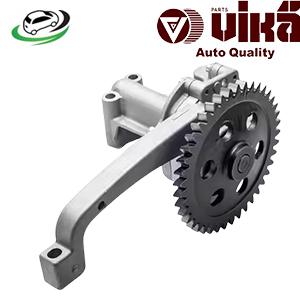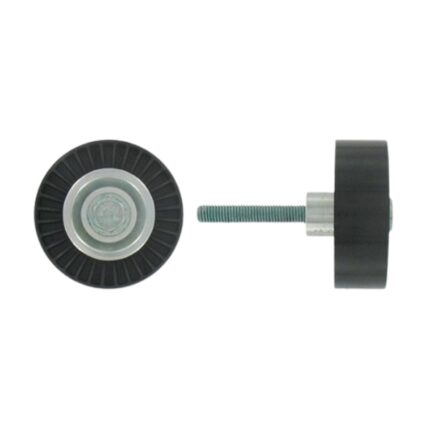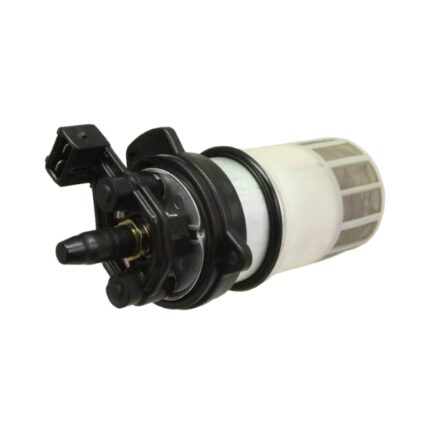Get VW Golf II 16v/8v Electric fuel pump 191906091H in Kenya
The electric fuel pump is a critical component of modern automotive fuel systems, responsible for supplying fuel from the fuel tank to the engine at the required pressure. This guide explores the function of the electric fuel pump, its types, benefits, common issues, and maintenance tips to ensure optimal performance and longevity.
What is an Electric Fuel Pump?
An electric fuel pump is a device that uses electrical energy to transport fuel from the fuel tank to the engine’s fuel injectors. Unlike mechanical fuel pumps, which are driven by the engine’s camshaft or crankshaft, electric fuel pumps are powered by the vehicle’s electrical system, allowing for more precise control over fuel delivery and pressure.
Typically located inside the fuel tank or mounted externally, the electric fuel pump is designed to provide consistent fuel flow and pressure, ensuring the engine receives the right amount of fuel for efficient combustion.
Function of the Electric Fuel Pump
The primary functions of the electric fuel pump include:
- Fuel Delivery:
The electric fuel pump draws fuel from the fuel tank and delivers it to the engine’s fuel rail or injectors. It maintains a specific pressure to ensure proper fuel atomization for combustion. - Pressure Regulation:
The electric fuel pump is designed to deliver fuel at a specific pressure, which is critical for optimal engine performance. The pressure is usually regulated by a fuel pressure regulator that adjusts the flow based on engine demands. - Fuel Filtration:
Many electric fuel pumps have built-in filters to prevent contaminants from entering the fuel system. This filtration protects the injectors and ensures the engine receives clean fuel. - Cooling:
The electric fuel pump is typically submerged in fuel, which helps cool it during operation. This design enhances reliability and extends the pump’s lifespan. - System Priming:
When the engine is started, the electric fuel pump primes the fuel system by pushing fuel through the lines and into the engine. This ensures quick and reliable starting.
Types of Electric Fuel Pumps
- In-Tank Fuel Pumps:
In-tank fuel pumps are the most common type of electric fuel pump. They are located inside the fuel tank and are submerged in fuel, which helps cool and lubricate the pump. This design minimizes noise and provides reliable fuel delivery. In-tank pumps are usually used in fuel-injected engines. - External Fuel Pumps:
External fuel pumps are mounted outside the fuel tank and are often used in older vehicles or in applications where in-tank pumps are impractical. While they can be noisier than in-tank pumps, they are easier to access for maintenance and replacement. - Variable Displacement Pumps:
Some modern vehicles use variable displacement pumps, which can adjust their flow rate based on engine demand. This design improves fuel efficiency by delivering only the necessary amount of fuel, reducing waste and emissions. - High-Pressure Pumps:
High-pressure electric fuel pumps are designed for engines that require higher fuel pressures, such as turbocharged or supercharged engines. These pumps deliver fuel at significantly higher pressures to ensure optimal performance and atomization.
Benefits of Electric Fuel Pumps
- Improved Fuel Efficiency:
Electric fuel pumps provide precise fuel delivery, allowing for better control over the air-fuel mixture. This precision enhances combustion efficiency, leading to improved fuel economy. - Reliable Performance:
Electric fuel pumps are generally more reliable than mechanical pumps. They can deliver consistent fuel pressure and flow, ensuring optimal engine performance under various operating conditions. - Quieter Operation:
In-tank electric fuel pumps operate quietly due to their submerged design. This quiet operation contributes to a more pleasant driving experience. - Simplified Design:
The electric fuel pump’s design eliminates the need for complex mechanical linkages and additional components, making it lighter and more straightforward to install and maintain. - Reduced Emissions:
By ensuring optimal fuel delivery and atomization, electric fuel pumps help reduce harmful emissions. This feature is increasingly important as emissions regulations become stricter.
Common Symptoms of a Failing Electric Fuel Pump
- Difficulty Starting the Engine:
A failing electric fuel pump may struggle to deliver the necessary fuel pressure, leading to difficulty starting the engine. This problem may manifest as extended cranking or failure to start. - Loss of Power Under Acceleration:
If the fuel pump is unable to provide adequate fuel flow, the engine may hesitate or lose power during acceleration. This symptom can lead to poor performance, especially under load. - Engine Stalling:
Inconsistent fuel delivery can cause the engine to stall unexpectedly. This issue can occur at any speed and can be dangerous if it happens while driving. - Noisy Operation:
While electric fuel pumps can produce some noise, a noticeable increase in noise—such as a whining or buzzing sound—can indicate a failing pump. This noise often results from wear or damage within the pump. - Check Engine Light:
If the vehicle’s onboard diagnostic system detects a problem with the fuel system, it may trigger the Check Engine Light. Diagnostic trouble codes (DTCs) related to fuel pressure or flow issues may be stored in the ECU.
Maintenance Tips for Electric Fuel Pumps
- Regular Fuel Filter Changes:
Changing the fuel filter at recommended intervals helps prevent contaminants from clogging the fuel pump. A clogged filter can cause the pump to work harder, leading to premature failure. - Use Quality Fuel:
Choosing high-quality fuel with the appropriate octane rating for your vehicle can help maintain the health of the fuel pump. Avoid fuels with excessive ethanol content, as they can damage the fuel system over time. - Maintain Proper Fuel Levels:
Keeping the fuel tank at least a quarter full helps ensure that the electric fuel pump remains submerged in fuel. Running the tank low can cause the pump to overheat and wear out prematurely. - Monitor for Warning Signs:
Pay attention to symptoms of a failing fuel pump, such as difficulty starting, loss of power, or unusual noises. Addressing these issues promptly can prevent further damage and costly repairs. - Inspect Electrical Connections:
Regularly check the electrical connections to the fuel pump for signs of corrosion or damage. Poor connections can lead to intermittent pump operation or complete failure. - Professional Inspections:
Schedule regular inspections with a qualified mechanic to assess the overall health of the fuel system, including the electric fuel pump. Professional evaluations can help identify potential issues before they become severe.
Conclusion
The electric fuel pump is a vital component of an automotive fuel system, ensuring that the engine receives the necessary fuel for efficient combustion and performance. By understanding its function, types, benefits, and maintenance requirements, vehicle owners can take proactive steps to ensure the longevity and reliability of their engines. Regular inspections, timely maintenance, and prompt attention to warning signs can help avoid costly repairs and keep the vehicle running smoothly for years to come.
Follow us on Facebook for more parts.





Reviews
Clear filtersThere are no reviews yet.